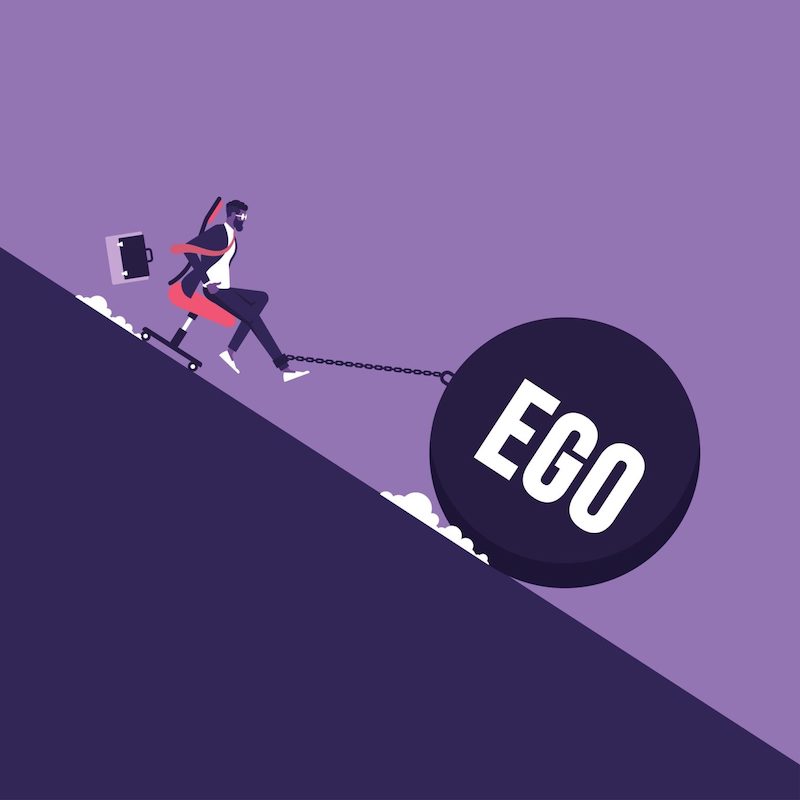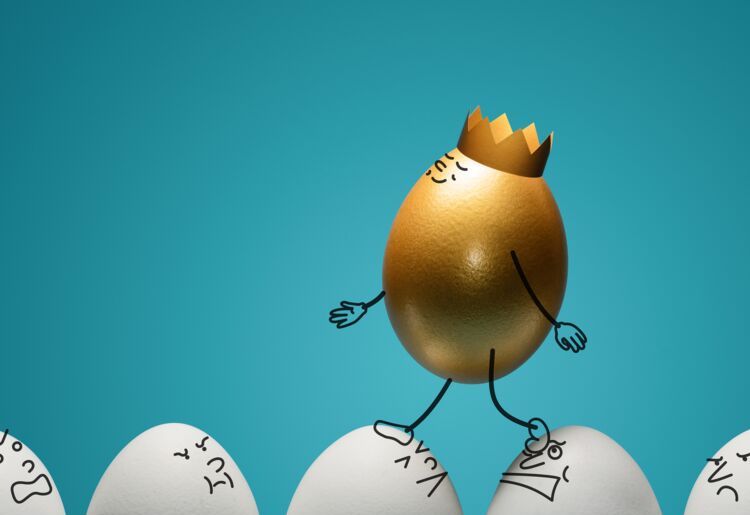How to Handle Ego as an Artist: Understanding the Consequences, Advantages, and Disadvantages
As an artist, you’re probably familiar with the concept of ego. Ego is a natural part of every person’s personality, and it refers to our sense of self-importance and self-worth. While a healthy level of ego can be beneficial for artists, too much ego can have negative consequences on their creativity, work, and relationship with their audience.
In this article, we’ll explore what ego is and how it affects artists. We’ll also discuss the advantages and disadvantages of managing your ego and provide some tips on how to handle it.
What is Ego, and How Does it Affect Artists?
Ego is a complex psychological concept that refers to our sense of self-identity and self-importance. It’s often described as the “I” or “me” that we use to refer to ourselves. Ego can manifest in different ways, such as feeling superior to others, needing constant validation and attention, or being defensive and resistant to criticism.
For artists, ego can have both positive and negative effects. On the one hand, a healthy level of ego can fuel creativity and drive an artist to produce their best work. It can also give them the confidence to share their work with the world and build a following.

On the other hand, too much ego can have negative consequences on an artist’s work and relationship with their audience. For example, an artist with an inflated ego may become resistant to feedback, believing that they don’t need to improve or change their work. They may also become more concerned with fame and recognition than with the quality of their art.
Advantages of Managing Your Ego
While ego can be a powerful motivator for artists, managing it can have several advantages. Here are a few:
- Increased creativity: By managing your ego, you can free yourself from the pressure to impress others or prove your worth. This can help you tap into your true creative potential and produce work that is authentic and meaningful.
- Better relationships: A healthy ego can help you build positive relationships with your audience, collaborators, and peers. By being open to feedback and criticism, you can show that you’re willing to learn and improve, which can earn you respect and admiration.
- Improved mental health: Too much ego can lead to stress, anxiety, and burnout. By managing your ego, you can reduce these negative effects and enjoy a more balanced and fulfilling life.
Disadvantages of Not Managing Your Ego
If you don’t manage your ego, you may experience some negative consequences, such as:
- Stunted creativity: An inflated ego can limit your creativity by making you more focused on external validation and less on your true creative impulses.
- Damaged relationships: A lack of humility and openness can damage your relationships with your audience, collaborators, and peers. This can lead to missed opportunities, lost fans, and a negative reputation.
- Emotional instability: An unchecked ego can lead to emotional instability, such as anger, frustration, and disappointment, when you don’t receive the recognition or validation you crave.

Tips for Managing Your Ego
Here are some tips for managing your ego as an artist:
- Stay humble: Remember that there’s always more to learn and improve upon. Be open to feedback and criticism and strive to continually grow and evolve as an artist.
- Focus on the work: Instead of getting caught up in the external rewards and recognition, focus on creating the best work you can. This will help you stay grounded and true to your artistic vision.
- Practice self-reflection: Take time toreflect on your motivations and behaviors as an artist. Ask yourself why you create and what drives you to do so. Be honest with yourself and identify any negative patterns or tendencies you may have.
- Seek feedback: Don’t be afraid to seek feedback from others, whether it’s from your audience, collaborators, or peers. Use their feedback to improve your work and build positive relationships.
- Stay balanced: Remember that your identity as an artist is just one part of your overall identity. Don’t let your ego overshadow other important aspects of your life, such as relationships, hobbies, and personal growth.
Practical Exercises for Managing Your Ego as an Artist
- Real-Life Artist Testimonials: Incorporate interviews or quotes from artists who have navigated their ego successfully. This can provide readers with relatable examples and practical insights into how different individuals manage their ego in the creative process.
- Case Studies: Offer detailed case studies of artists who experienced significant career shifts (both positive and negative) due to their handling of ego. Analyze their journey, what they learned, and how they adapted.
- Interactive Elements: Add interactive components like quizzes or self-assessment tools to help readers evaluate their own relationship with their ego. This can make the article more engaging and provide personalized value.
- Expert Opinions: Include insights from psychologists or career coaches specializing in creative fields. Their professional perspectives on ego management can lend credibility and depth to your discussion.
- Practical Exercises: Offer readers practical exercises or daily practices to help manage their ego, such as mindfulness, journaling prompts focused on self-reflection, or strategies for seeking and processing feedback constructively.
- Visuals and Infographics: Integrate visuals, charts, or infographics that summarize key points, such as the advantages and disadvantages of ego in artistic creation, or steps for ego management. Visual aids can make complex information more accessible and memorable.
- Historical Perspectives: Provide a brief overview of how the concept of ego has been viewed and managed by artists throughout history. This can offer readers a broader context and show that the struggle with ego is a timeless aspect of the creative process.
- Further Reading/Resources: Include a section with recommended books, articles, podcasts, and videos for further exploration of ego management, creativity, and personal development. This can help readers who are interested in diving deeper into the topic.
- Community Discussion Forum: Encourage community engagement by inviting readers to share their experiences and strategies for managing ego in the comments section or on a dedicated forum. This can foster a supportive community of artists learning from each other.
Celebrate Others’ Successes

In the journey of an artist, it’s easy to become ensnared in the web of comparison and competition, letting one’s ego cast a shadow over the accomplishments of others. However, embracing the successes of fellow artists not only fosters a supportive community but also helps in managing one’s ego. Here’s how you can genuinely celebrate the achievements of others and cultivate a mindset of abundance and mutual growth.
Recognize the Value of Community
Understand that the art world thrives on diversity and the collective contributions of its members. Every artist brings something unique to the table, and the success of one does not diminish the value of another. Recognizing this can shift your perspective from seeing other artists as competitors to viewing them as allies in the shared mission of creating beauty and meaning.
Share and Promote Their Work
A tangible way to celebrate others’ successes is by sharing and promoting their work within your network. This could be as simple as sharing their exhibitions on social media, writing a supportive comment, or recommending their work to potential clients or galleries. Such actions not only help their work gain visibility but also strengthen your relationships within the artistic community.
Offer Genuine Congratulations
When a fellow artist achieves a milestone, take the time to offer genuine congratulations. Whether it’s through a personal message, a comment on their social media post, or a congratulatory note, let them know you appreciate and admire their hard work and dedication. Authenticity in your congratulations can make a significant impact on their celebration.
Reflect on Their Journey
Take a moment to reflect on the journey and effort that led to their success. Understanding the challenges they overcame and the dedication they showed can provide you with inspiration and motivation in your own artistic endeavors. It can also remind you that success is often the result of perseverance and resilience.
Learn from Their Success
Instead of viewing others’ successes with envy, see them as learning opportunities. Analyze what strategies, techniques, or approaches they used that you can adapt or learn from. This mindset not only helps in managing your ego but also contributes to your personal and professional growth as an artist.
Practice Gratitude
Cultivate a habit of gratitude for the success of others. Gratitude shifts your focus from what you lack to what you can appreciate and learn from. It helps in maintaining a positive outlook and reduces feelings of jealousy or inadequacy that can stem from an unchecked ego.
Engage in Collaborative Projects
Engaging in collaborative projects with other artists can be a powerful way to celebrate their talents and successes while contributing your own. Collaboration fosters a sense of community, mutual respect, and shared achievement, reinforcing the idea that success in the arts is not a zero-sum game.
By celebrating the successes of others, you not only contribute to a positive and supportive artistic community but also engage in practices that help manage and balance your ego. This approach not only enriches your personal growth but also enhances your relationships with fellow artists, creating a more vibrant and collaborative art world.
Managing your ego as an artist is important for achieving a healthy and fulfilling career. While a healthy level of ego can be beneficial, too much can have negative consequences on your creativity, work, and relationships. By staying humble, focusing on your work, and seeking feedback, you can keep your ego in check and enjoy a successful and satisfying career as an artist.

